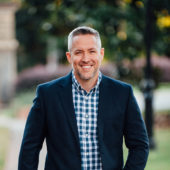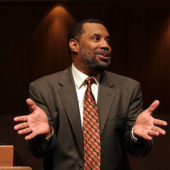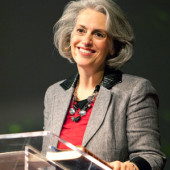Christians are second chance people. None of us get it all right the first time. We are fallen and we fail. All have sinned and fallen short of the glory of God. Whether we like to admit it or not, we’ve all been caught and convicted by God. But a full quarter of our fellow Americans have also been caught, convicted and incarcerated through a criminal justice system that is often unjust.
The question before us as individuals and as a nation is this: do we really believe in restoration, rehabilitation and second chances? Are we willing to extend to others the kind of real second chance that God extends to us in the fullness of His uncompromising justice and complete mercy every day?
As the redeemed people of God, we know what it means to live by the grace of a second chance (and a third and a fourth). We know that redemption is both an event (justification) and a process (sanctification). We know we learn from and grow in grace over time into the full maturity – growing up every way into Christ.
Will we pass on to others what we in turn have also received? That is the question.
The President has declared April Second Chance Month. In my book, Speak the Truth, I share an encounter related to this topic:
I had one too many things to manage as I exited the cab in front of the Union Rescue Mission in D.C. I was going from the meeting to the airport and hadn’t really thought it might look like I was moving in. The men who live at the rescue mission had obviously been told that some group of suits was holding a meeting in the building so they were out front and immediately motioned to the left side of the building where I was supposed to be. The problem was I was early, had a coffee to drink and was far more interested in the guys sitting out front than in the pre-meeting chit-chat taking place inside. So, I ignored their directions and rolled my suitcase into the concrete courtyard. Two gentlemen were sitting at a table and once I caught their eye I maneuvered toward them.
“May I join you for coffee?” I asked.
They motioned to an empty seat, looking warily at me. They each had a cup of coffee and there was a folded newspaper in the center of the table. I introduced myself and offered my hand, which was apparently a somewhat unusual gesture as both guys awkwardly shook my hand as they told me their names.
“Elmer and Rick, it’s nice to meet you. Thanks for letting me share your table. Don’t let me interrupt your conversation. What were you talking about before I intruded?” I asked.
“Him,” was the one word answer as the man to my right flipped the paper open to reveal a picture of Donald Trump. With that we were off.
“What do you think about him?” I asked. Their answers were colorful.
“But she’s just as bad,” the man across from me said as the conversation turned from Trump to Clinton.
It occurred to me that at that moment I could have been sitting with any two people at any table over coffee in any city, town or hamlet in America. We were just three citizens talking about the challenges we face as a nation.
Then my ignorance came to the fore, “So, who are going to vote for?” My question was met with silence and I saw their jaws tighten and their faces slightly harden.
Elmer looked at the paper in the middle of the table as he said, “Mam, we don’t get to vote no more.”
I didn’t answer until he raised his eyes. I looked at him and said, “Elmer, I’m so sorry. I had no intention of embarrassing you. I didn’t know.”
Rick bailed me out, “It’s alright. How could you? But that’s why we’re here. It’s hard to get started again once you’ve been on the inside.”
The conversation turned to jobs and the lack of them. And then Elmer said something I’ll never forget, “The world changed a lot in the twelve years I was in. But the world don’t give me no credit for all the ways I changed.”
He’s right and that’s wrong. We all three agreed Christians ought to be on the forefront of criminal justice reform and that churches ought to be helping people who have done their time and paid their debt to society actually live a redeemed life. To that point Rick said, “Jesus is all about second chances. And more than that if a person needs it. Look at Peter. He messed up a lot but Jesus kept giving him another chance. People could learn from that.”
Yes, Rick and Elmer, indeed we could.
How are you extending the grace you have received?
How are you forgiving others as you, in Christ Jesus, have experienced the second chance of forgiveness?
One way that you can engage is to encourage your members of Congress to pass the Prison Reform Bill.
Millennial evangelicals with Chris Martin


















